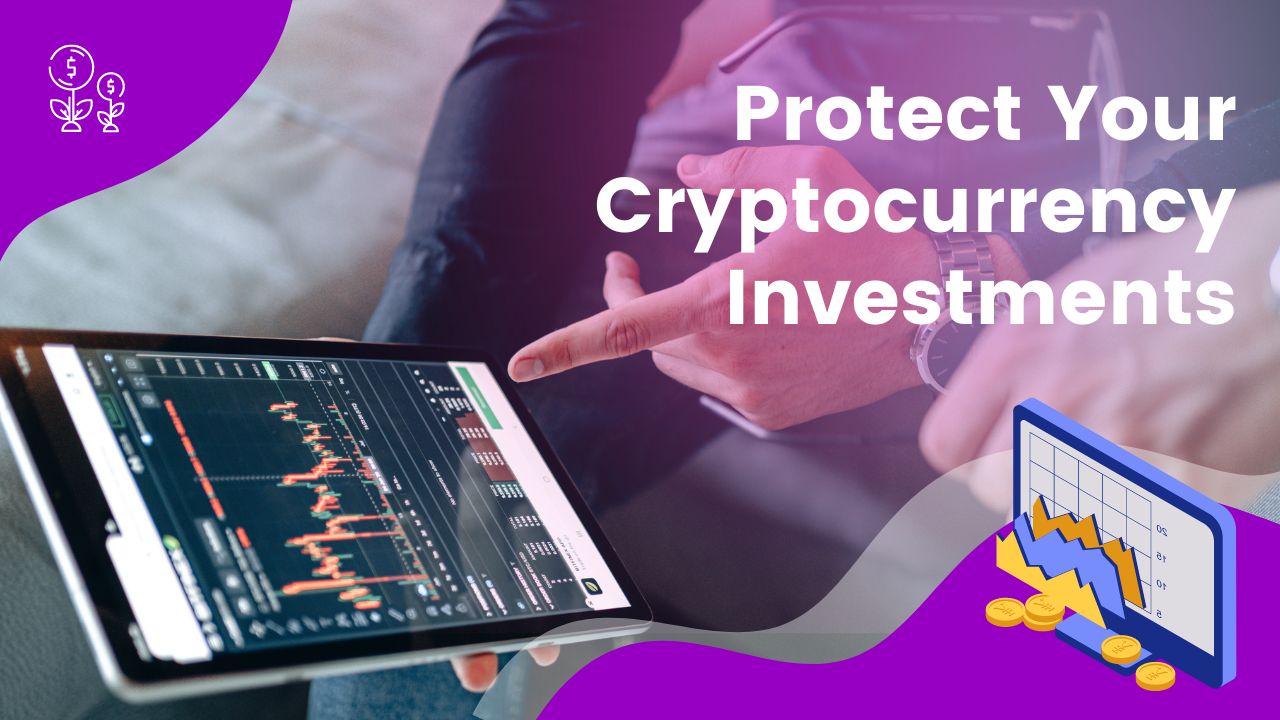Cryptocurrency has revolutionized the way we think about finance and investment. As we move through 2024, protect your cryptocurrency investments is more important than ever. In this guide, you’ll find expert tips and strategies to help you effectively safeguard your digital assets, ensuring they remain secure in an ever-evolving landscape.
Understanding the Cryptocurrency Landscape in 2024
The Rise of Cryptocurrency: Trends to Watch
As cryptocurrencies gain mainstream acceptance, understanding the current landscape is crucial. In 2024, trends like the increasing adoption of blockchain technology and the rise of decentralized finance (DeFi) platforms are shaping the market. Staying informed about these trends helps you make educated decisions and adapt your investment strategy accordingly.
Legal Considerations: Is Your Investment Safe?
Before investing, it’s essential to understand the legal framework surrounding cryptocurrencies. Regulations vary by country and can impact the security of your investments. Familiarize yourself with local laws and ensure that your chosen platforms comply with them to avoid potential legal pitfalls.
Essential Strategies for Protecting Your Cryptocurrency Investments
Choosing the Right Cryptocurrency Exchange
Selecting a reliable exchange is the first step in protecting your cryptocurrency investments.
Key Features of a Secure Exchange
Look for exchanges that offer strong security measures, such as two-factor authentication (2FA), cold storage for funds, and a solid reputation. Research user reviews and check for past security incidents.
Red Flags to Avoid When Selecting an Exchange
Be wary of exchanges with unclear fee structures, poor customer service, or a lack of regulatory compliance. Avoid platforms that don’t provide transparency about their security practices.
The Importance of Two-Factor Authentication (2FA)
2FA adds an extra layer of security to your accounts.
How to Set Up 2FA on Your Accounts
Most exchanges and wallets support 2FA. To enable it, download an authenticator app (like Google Authenticator), link it to your account, and follow the setup instructions. This simple step can significantly reduce the risk of unauthorized access.
Additional Security Measures to Consider
In addition to 2FA, consider using a VPN when accessing your accounts and regularly changing your passwords. This can further protect you from potential threats.
Related Post: How to Invest in Cryptocurrency Safely in 2024: A Beginner’s Guide
Storing Your Cryptocurrency Safely
Understanding Crypto Wallets: Hot vs. Cold
Choosing the right wallet is vital for protect your cryptocurrency investments.
What Are Hot Wallets?
Hot wallets are connected to the internet, making them convenient for daily transactions. However, they are more susceptible to hacks.
Best Practices for Hot Wallet Security
If you choose a hot wallet, ensure you enable all available security features, including 2FA, and limit the amount of cryptocurrency you store there.
Exploring Cold Wallet Options: Hardware vs. Paper Wallets
Cold wallets are offline storage solutions that offer higher security. Hardware wallets, such as Ledger or Trezor, are popular choices. Paper wallets, while less common, can also be effective if generated securely.
Tips for Backing Up Your Wallets Securely
Always back up your wallets by storing your recovery phrases in a secure location. Consider using a safe or safety deposit box to keep this information safe from theft or loss.
Common Cryptocurrency Scams and How to Avoid Them
Recognizing Phishing Scams
Phishing attacks are prevalent in the crypto space. Be cautious of unsolicited emails or messages asking for your credentials.
Identifying Fake Wallets and Apps
Always download wallets and apps from official sources. Check user reviews and verify their legitimacy before installation.
Staying Safe from Malware Attacks
Keep your devices secure by regularly updating your software and using reliable antivirus programs. Avoid clicking on suspicious links or downloading unknown files.
How to Protect Yourself from Network Vulnerabilities
Understanding Potential Hacking Risks
Hacking risks are inherent in the cryptocurrency space. Familiarize yourself with the different types of attacks, such as phishing, hacking exchanges, and exploiting smart contracts.
Techniques to Safeguard Your Investment from Attacks
Use a combination of hot and cold wallets, keep your software updated, and regularly monitor your accounts for unusual activity. These practices can help mitigate risks.
Crypto Pitfalls: Mistakes to Avoid in 2024
Overcoming FOMO (Fear of Missing Out)
Don’t let emotions drive your investment decisions. Research thoroughly and invest based on solid analysis rather than hype.
Avoiding Overexposure to a Single Asset
Diversifying your portfolio is crucial. Avoid putting all your funds into one cryptocurrency to minimize risk.
Expert Tips for Cryptocurrency Investors in 2024
Conducting Thorough Research Before Investing
Always perform due diligence before investing in any cryptocurrency. Understand the technology, market trends, and potential risks.
Keeping Your Software Updated
Regular updates are essential for maintaining security. Ensure that your wallets and devices have the latest software to protect against vulnerabilities.
Using Strong, Unique Passwords
Use complex passwords that combine letters, numbers, and symbols. Avoid reusing passwords across different accounts, and consider using a password manager for added security.
Conclusion: Staying Informed and Vigilant
As the cryptocurrency market continues to evolve, staying informed and vigilant is essential. Regularly update your knowledge about security practices and market trends to protect your cryptocurrency investments effectively.
Continuous Learning: Resources for Investors
Follow reputable cryptocurrency news sites, engage with online communities, and participate in forums to keep your knowledge up-to-date.
Final Thoughts on Protecting Your Crypto Investments
By implementing these strategies, you can significantly enhance the security of your cryptocurrency investments. Remember that proactive measures are the best defense against potential threats.
FAQs
What is the safest way to store my cryptocurrency?
Using a hardware wallet for long-term storage is generally considered the safest method, as it keeps your assets offline.
How can I recognize a phishing attempt?
Look for suspicious emails or messages asking for personal information, especially if they contain urgency or threats. Always verify the sender’s identity.
What should I do if I suspect my account has been hacked?
Immediately change your passwords, enable 2FA, and contact your exchange or wallet provider for assistance. Monitor your accounts for any unauthorized transactions.

Leave a Reply